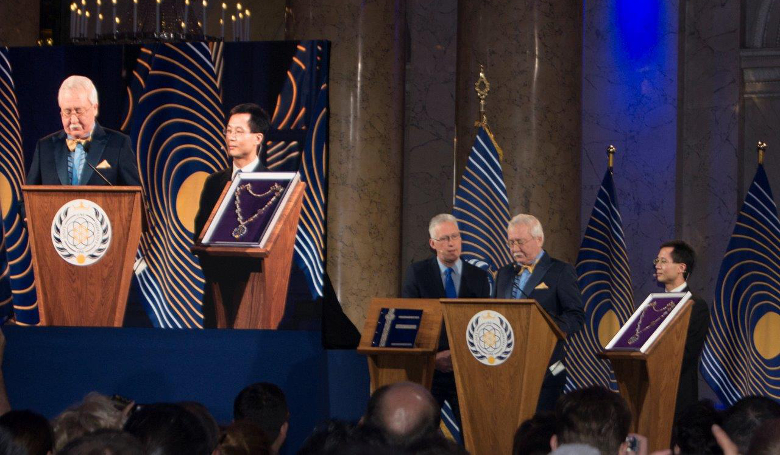Today, Asgardia’s first Head of Nation, Dr Igor Ashurbeyli, announced at his inauguration ceremony at the Hofburg Palace in Vienna that he expects the citizens of the first space nation will be capable of living in space in permanent habitable platforms both in low Earth orbit and on the Moon within the next 25 years.
The ceremony followed Asgardia’s first Parliamentary meeting, also held in Vienna the day before, where Senior Asgardia representatives including Professor Yun Zhao as the Head of the Supreme Court, Lembit Opik as the Chairman of Parliament, and an interim Prime Minister were elected. Voting on regulations and on the Law of citizenship also took place.
The inauguration itself took place in front of an audience of high-level diplomats, international scientists, engineers, and legal experts, alongside approximately 140 newly elected Asgardian Members of Parliament and several senior representatives of Asgardia.
After taking his oath of office, along with announcing that Asgardia will have habitable space stations and stationary settlements on the Moon equipped with artificial gravity and protection from cosmic radiation, Dr Igor Ashurbeyli also discussed details of Asgardia’s working timescales for the development of Asgardia’s infrastructure and economy, as well as plans for Asgardia’s protection of Earth and the progression of Asgardia’s diplomatic relations with other nations.
“In the next few months we will need to form the cabinet of ministers and elect heads of parliamentary committees and members of the quorum,” said Ashhurbeyli. “Other important milestones will be the establishment of the nation’s bank and production of the nations currency. All of this needs to be completed by the end of the year.”
To achieve UN recognition, Dr Ashurbeyli will essentially begin establishing diplomatic relations with UN recognised nations with the goal of receiving individual country recognitions. Asgardia, which has plans to open embassies on all continents, will be governed by 12 ministries; Information and Communication, Justice, Science, Citizenship, Foreign Affairs, Finance, Trade and Commerce, Youth and Education, Safety and Security, Equity and Resources, Administrative Affairs, and Manufacturing.
Last year, the nation made its first step into space with the launch of its inaugural satellite. The satellite, dubbed Asgardia-1, will eventually be a part of a technical structure that will consist of multiple core satellites, clusters of network-centric small satellites, and eventually a protective space platform.
“In the area of the science, engineering and infrastructure, Asgardia will build an infrastructure that is independent from ground based systems on Earth,” said Ashurbeyli. He went on further to say that Asgardian citizens will carry hand-held devices with integrated passports, credit cards and conventional smartphones.
“Access to outer space should be a human right, beyond the control of any Earthly nation,” said Ashurbeyli and if Asgardia grows to incorporate 150 million citizens, it would make the space nation the twelfth largest country in terms of population and one of the top twelve economies of Earth added its Head of Nation.











